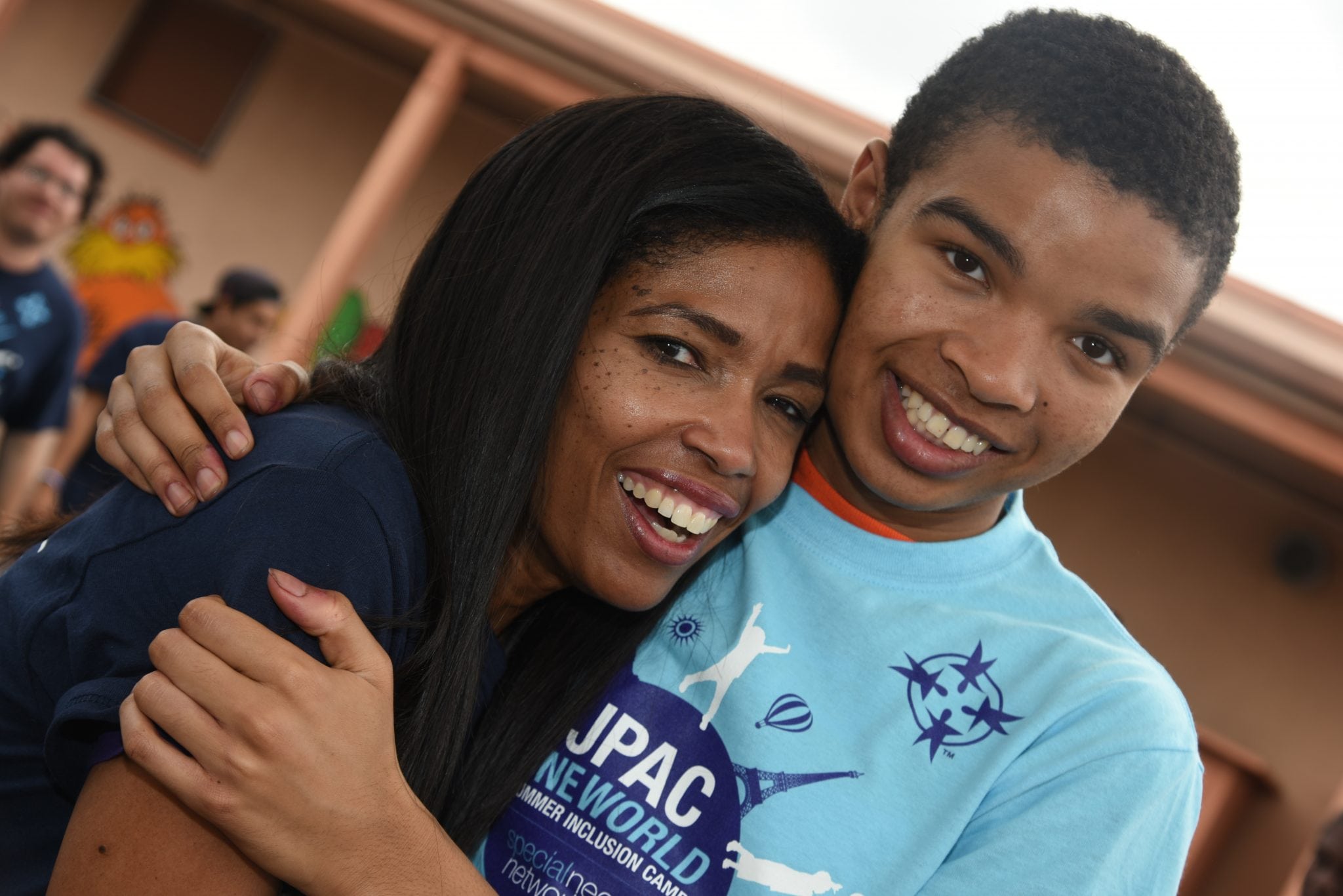
Attorney and advocate Areva Martin, pictured here with son Marty, says moms need to take care of themselves – especially if they are also caring for kids with special needs. PHOTO COURTESY AREVA MARTIN
Areva Martin is a busy woman. She is an attorney, legal analyst and commentator who often appears on “The Doctors,” “Dr. Phil,” “Dr. Drew” and “Good Morning America.” She founded and runs the resource and advocacy organization Special Needs Network and is a wife and mother of three, with one son on the autism spectrum.
And – believe it or not – she has learned to take good care of herself. “I think the first thing that moms neglect is their own personal health,” Martin says. She has talked with many mothers who either gained or lost 25 or 30 pounds after their child’s diagnosis, because of the stress and the scheduling demands of taking their child to appointments and therapies.
Martin understands how tough it can be to fit in healthy habits such as regular exercise. She herself struggled, joining a gym or a new class here and there but skipping workouts more often than she went. Then, around four years ago, she got serious and made it part of her daily routine.
“I used to make the mistake of thinking I needed to be motivated to work out,” Martin says. “What I needed was to be disciplined. I schedule it in and I treat it like a meeting.” She even left a recent Dodgers game in the eighth inning because it was getting late and she knew she needed to be up at 6:30 a.m. the next morning for her workout.
Me-Time is Essential
Martin enjoys running, but says each mom has to figure out what works for her. She has found regular exercise to be life changing, giving her the strength and energy to manage her busy life. She says workouts can serve as a break from the demands of parenting a child with special needs. “It’s that alone time, it’s that meditation time, it’s that de-stressing time,” she says.
Martin has also struggled with healthy eating, trying every food denial and fad diet out there before finding her simple, effective solution. “The way I would want my child to eat, I try to eat,” she says. Most moms want to feed their kids fresh and healthy food, so set a good example. Before you take a bite, think: “Would I feed my kids this?”
Here are Martin’s tips to help moms take care of themselves, so they can take care of their families:
- Don’t overdo it. Begin with a brisk walk, not a five-mile run. Add two fruits a day or lunchtime salads to your diet, rather than trying to transform your eating in a day. With reasonable goals, you’re less likely to crash and burn.
- Be consistent. Build these small habits into a pattern. When you’re successful at making exercise and healthy eating part of your day, you’ll start to enjoy it. If you get off track, just pick up where you left off.
- Reclaim lost time. Martin sees many moms waiting for their kids to get out of therapy. “Bring some comfortable shoes and walk for 30 minutes,” she urges. “Get a little creative.”
Along with neglecting their health, many moms Martin has met dropped out of the workforce after their child’s diagnosis to devote all of their time to their child’s care. For some, this is the right choice. “There’s a spectrum of parents,” Martin says, but she wondered whether pursuing her career was best for her family. “Was I being a good mother if I was still working a really demanding profession?”
Martin finally concluded that not only was her work helping pay for therapies for her son, but that her Type A personality wouldn’t let her be happy at home, setting aside all the hard work she had put in to become an attorney. “Being fulfilled as a person helps you be a better parent,” she says. “Work was helping me do the very things that were going to benefit my son.”
Make Time to Play Your Way
It’s also OK for moms – even moms of children with special needs – to have some leisure time. So go get that manicure, see that movie or take that vacation. “Don’t let your inner guilt or the judgments of others prevent you from taking care of yourself,” says Martin. “Just because you’re the parent of a special-needs child doesn’t mean you’re not a woman. A special-needs child shouldn’t preclude you from living the rest of your life.”
























